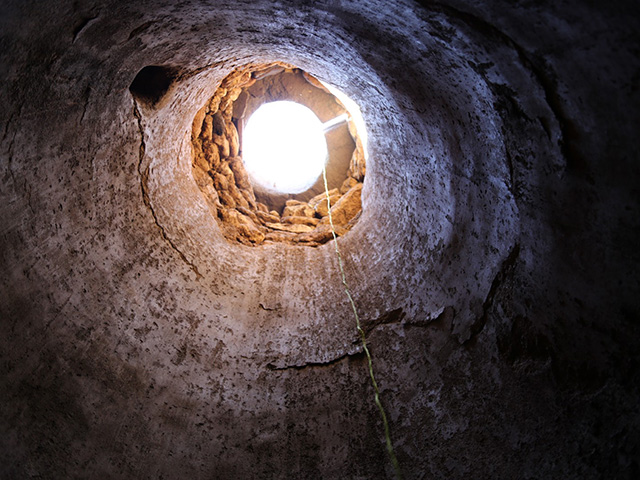Bass Connections Team Unearths the Roman Empire
For the last several summers, Duke professor Maurizio Forte has brought a team of researchers to Italy, where they spend months digging in the dirt in hopes of unearthing artifacts from ancient Etruscan and Roman civilizations.


The effort is dubbed the “Vulci 3000 Project,” named for the archaeological site in the Viterbo province in Italy. The artifacts unearthed help the research team examine the development of civilizations — first the Etruscans, later the Romans — over roughly 15 centuries.
The group made more headway this summer, employing drones and other high-tech tools to discover an Etruscan well connected with a complex network of tunnels.
“This finding, once completely excavated, will be able to show the complexity and the extension of the Etruscan water system, later integrated in the Roman urban plan,” Forte says.
The group also unearthed several Roman coins, one of them depicting the Emperor Domitian, who ruled from 81–96 AD. (This finding helps the Duke team determine the age of the main imperial building.)

At the end of the 2017 season, the team released to the Vulci Park a new digital app related to the virtual reconstruction of the archaeological landscape. It will help visitors plan in advance their visit and to see very accurate and new scientific data collected by Duke University with geophysical prospections, drones and remote sensing systems.
The project is mainly supported by a grant from Duke’s Bass Connections initiative.
By Eric Ferreri; originally posted on Medium
Learn More
- Read more about this Bass Connections project team, Digital Cities and Cyberarchaeology.
- Explore the Bass Connections theme of Information, Society & Culture.
- Find out how to get involved in Bass Connections.
Photos courtesy of Maurizio Forte. 1: Duke researchers work with an Etruscan well-cistern connected with a complex water management system in ancient Italy. 2: The same well-cistern, from underground. 3: One of several Roman coins discovered in the summer of 2017 by Duke scholars excavating in Vulci in Italy. It depicts the emperor Domitian, who ruled from 81–96 AD.